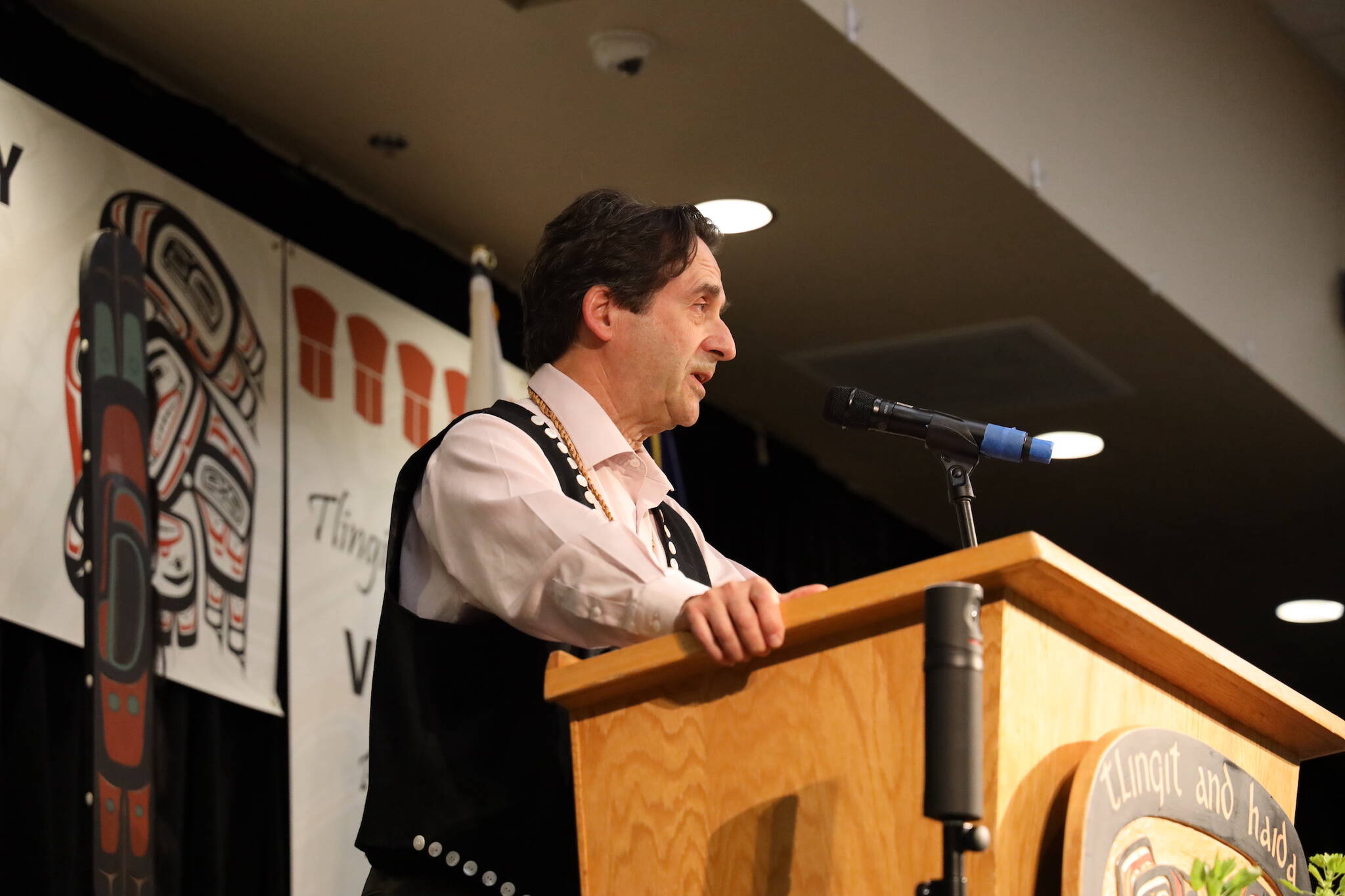Cooperation is the key to resolving the state of Alaska’s “exasperated” opposition to the federal government’s approval of the first parcel of land owned by the Central Council of the Tlingit and Haida Indian Tribes of Alaska to be put into federal trust, according to the tribe’s representing attorney Philip Baker-Shenk.
During the first day of Tlingit and Haida’s 88th annual Tribal Assembly Wednesday, Baker-Shenk gave a keynote address, which matched the theme of the three-day Assembly, “Sovereignty: In land we trust.”
Baker-Shenk, who has represented the tribe since 1997, commended the resiliency of Tlingit and Haida and the “decades of hard work” from tribal leaders, like President Richard Chalyee Éesh Peterson, who fought and advocated for tribal sovereignty, self-determination and to bring land into trust.
Baker-Shenk directly addressed the state of Alaska’s recent move in mid-January — just hours before the start of this year’s legislative session — to file a lawsuit against the federal government over a small lot of land in downtown Juneau, which was approved to be the first parcel of land owned by Tlingit and Haida to be put into federal trust.
The state’s complaint asks the U.S. District Court to declare the federal government’s action “was arbitrary and capricious, an abuse of discretion, and not in accordance with law,” undo the decision to take the lands into trust, return the land to Tlingit and Haida, vacate any proclamation designating the land as a reservation and stop similar land-into-trust applications in the future.
“For a tribal government like Tlingit and Haida, regaining land ownership and jurisdiction is key to restoring the full measure of sovereignty it once had,” Baker-Shenk said. “But, uninformed and distorted fears keep blowing stiff headwinds that slow our progress for that Tlingit and Haida goal.”
Baker-Shenk urged the state that it “need not fear” tribal jurisdiction and land sovereignty. He said Congress is the power that sets tribal jurisdiction as outlined in the U.S. Constitution, not the state of Alaska. He continued to say there should be no debate, and emphasized the benefits tribal jurisdiction brings to both the tribe and surrounding communities.
He continued by directly asking the state to drop its lawsuit and told tribal members to continue their resiliency in building back tribal sovereignty and self-determination.
“For generations of people, you have not only survived but thrived, despite existential threats to your cultures and your tribal government, he said. “ Together as a tribe, you have one future tribally determined, and recovering some tribally determined control over some of your former land will brighten your tribally determined future like the sun in a cloudless sky in Juneau today.”
In an interview with the Empire after his speech, Baker-Shenk said the current status of the lawsuit hasn’t changed much since it was first filed in January.
“Litigation moves slowly, it really just depends on the state for the timing of it,” he said. “The decision has been made, the state is trying to slow it down or block it, but they could work out an arrangement with the tribe at any time.”
• Contact reporter Clarise Larson at clarise.larson@juneauempire.com or (651)-528-1807.

